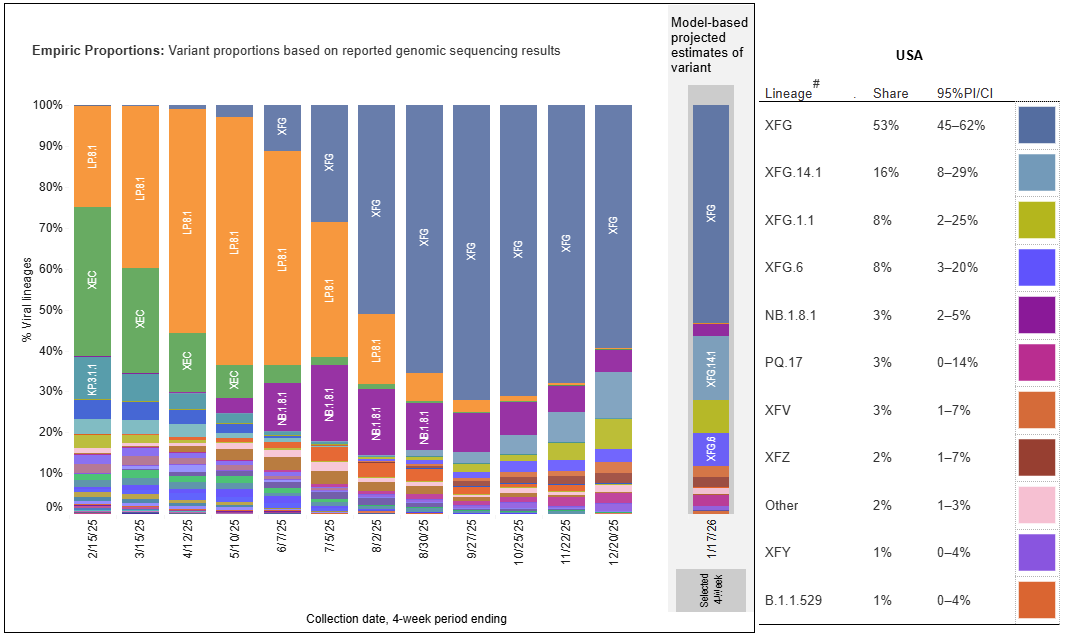What COVID-19 variants are going around in January 2026?

Get the latest COVID-19 news from infectious diseases expert Mark Rupp, MD, including COVID-19 case rates, types of variants circulating and vaccine updates.
The most recent data on the test positivity rate is from the week ending January 10, which was 5.2%. When test positivity is above 5%, transmission is considered uncontrolled. COVID cases accounted for .8% of all emergency department visits.
Since many are using home tests that are not reported through public health or are not testing at all, the official case counts underestimate the actual prevalence of COVID-19.
What COVID-19 variant are we on?
Currently, the dominant variant nationwide is XFG, with 53% of cases, followed by XFG.14.1, with 16% of cases, and XFG.1.1, with 8% of cases. "The original omicron variant is gone now," says Dr. Rupp. "Currently subvariants of omicron are circulating, including XFV, PQ.17 and XFZ."

COVID-19 in Nebraska
In the week ending January 17, 2025, there were 4,372 COVID-19 tests performed in Nebraska, with 376 positive results. This is a 8.6% positivity rate, a .7% increase from the week prior.
Which COVID-19 variant do I have? And do COVID-19 tests tell you the variant?
When you receive a COVID-19 test, you won't find out which variant caused your infection. That's because COVID-19 tests only detect the presence of the virus – they don't determine the variant.
Genomic sequencing looks at the genetic code of the virus to determine which variant caused the infection. Sequencing results are used by public health experts to understand variant trends in the community.
Will COVID-19 variants affect the vaccine?
The best way to prevent new variants is to slow the spread of the virus. The great news is that these proven public health strategies continue to work against new variants as well.
- Get vaccinated
- Choose outdoor activities over indoor activities whenever possible
- Wash your hands often
- Avoid close contact with others
- Wear a mask in public places
- Stay home if you're sick or have symptoms of COVID-19
"We have a lot of disease out there. People should continue to be careful," Dr. Rupp says. "Get the bivalent booster, try to avoid high-risk settings. If you can't, then I think you should wear a mask."
Get your COVID vaccine
The U.S. Centers for Disease Control and Prevention recommends everyone 6 months and older get updated COVID-19 vaccines this fall. Vaccination remains the best protection against COVID-19-related hospitalization and death.
Our pharmacies offer COVID-19 vaccines on a walk-in basis. View which vaccines are available at each location.





